Camper van road-tripping is a great way to experience the awe-inspiring landscapes of Iceland. The country’s incredible beauty and landscape promise an exceptional journey, and there’s really nothing quite like doing it on your own time.
Unlike the conventional motorhome, camper vans cater to smaller groups or individuals inclined to explore. They are perfect for multi-day road trips, and work perfectly on Iceland’s roads.
As a matter of fact, the first trip I took to Iceland was all done in a camper van! Scott and I had never been in one before, and after we rented ours, we were hooked! It’s eventually what led us to living in a camper van full time.
So here’s what to know if you’re considering an Iceland camper van trip!
📌 Save this to Pinterest!
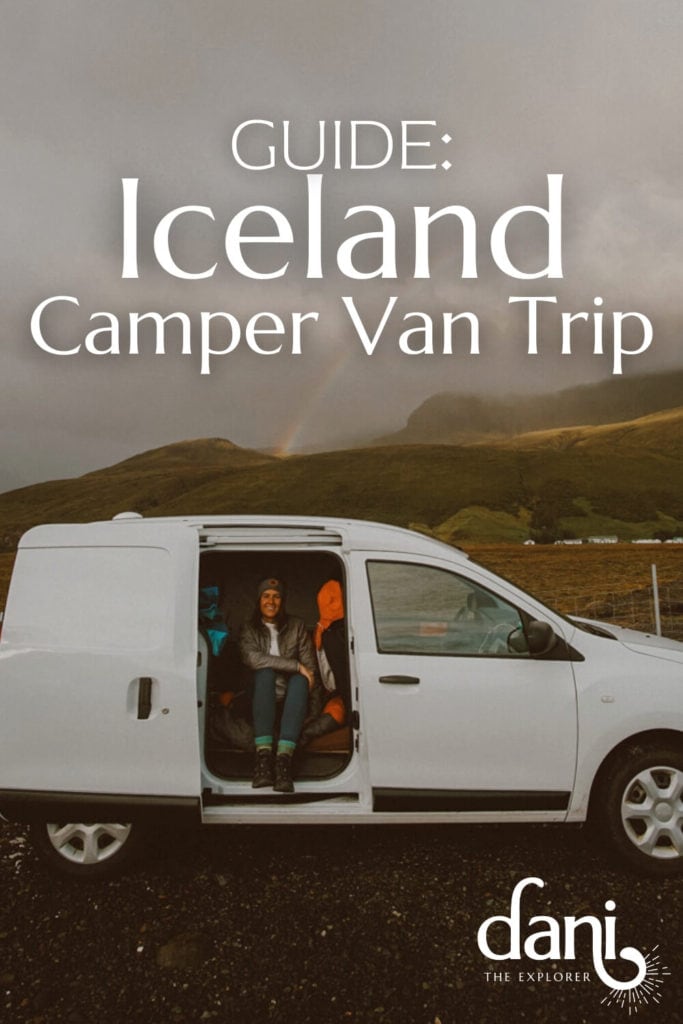
Why Travel in a Camper Van?
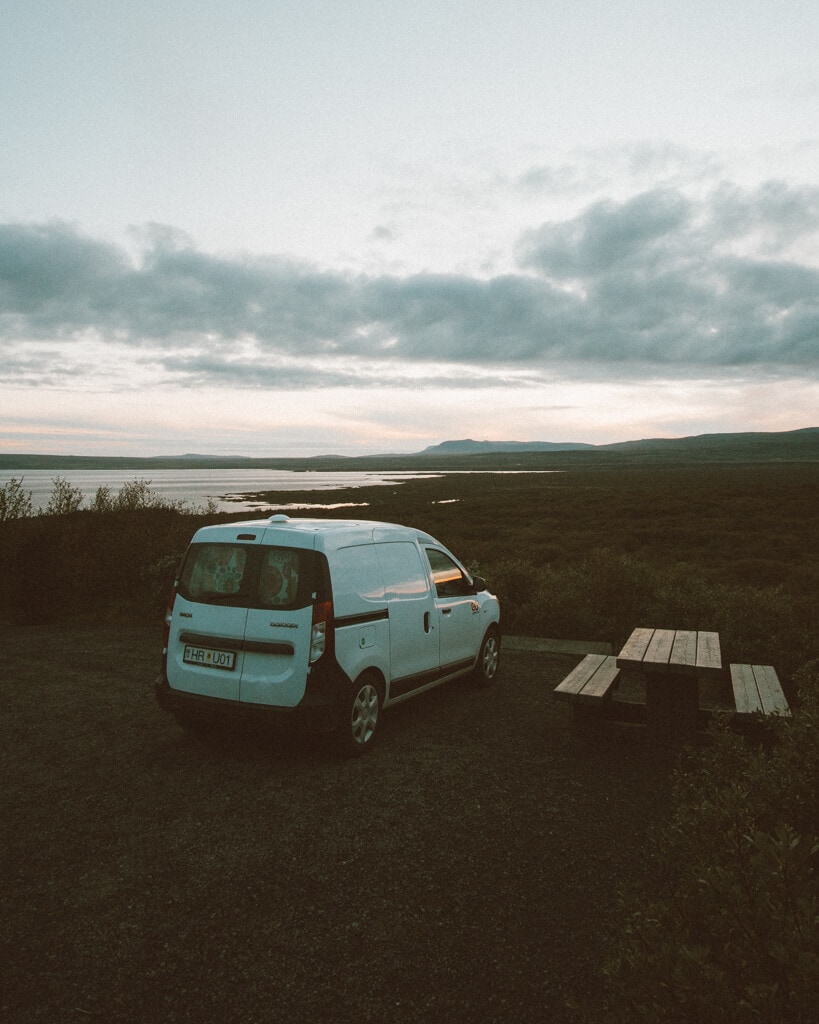
Camper vanning will transport you to nature-rich territories.
Few places rival the unique connection forged with the environment like Iceland, where sleeping alongside a river and waking up beside a vast vista are part of everyday life. Talk about an environment perfect for Instagram reels.
Another big reason to think about traveling in a camper van across Iceland is the financial savings. This way, you can forget the expensive hotel and car rental expenses, which are effectively combined.
You can avoid a lot of holiday stress and labor with a camper van.
For example, when you opt for hotels, you constantly need to pack and unpack your vehicle. Not so when everything is in one vehicle, including your sleep space!
Renting Camper Vans in Iceland
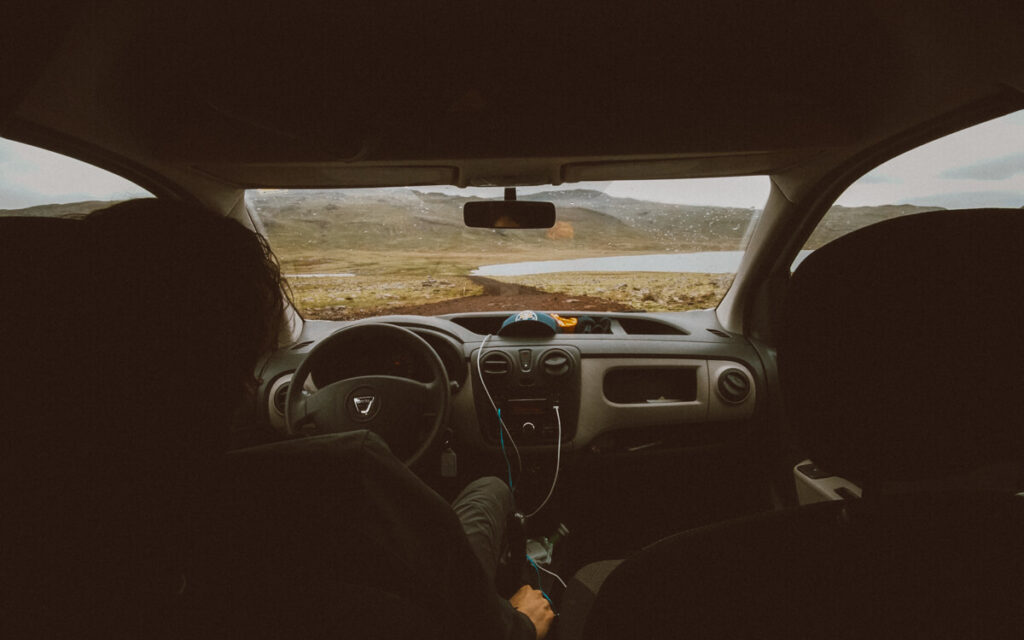
When it comes to finding the best Iceland camper vans, it depends on what you prefer. Think of it as a scaled-down version of an Iceland RV trip.
According to one rental agency, the most popular models are the Renault Kangoo, the Fiat Doblo, and the VW Caddy. These are more than suitable for the N roads or national roads.
If you’re planning to drive on the tough F-roads in Iceland, you’ll need a camper van with 4×4 capabilities. Like a Dacia Duster or a Suzuki Jimny with rooftop tent options.
Cost of Renting a Camper Van in Iceland
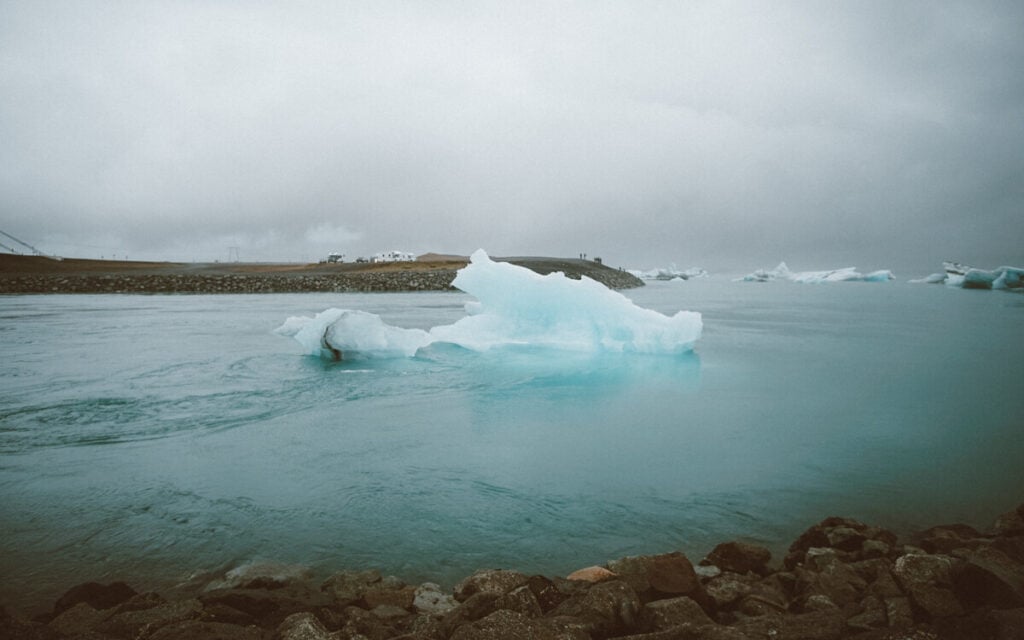
If you rent a camper van in Iceland for a week, be prepared to spend around $480, which comes out to about $70 per day.
The actual cost can vary depending on the season and the specific vehicle you choose. Also, longer rentals may drop the daily price cost.
Transmissions
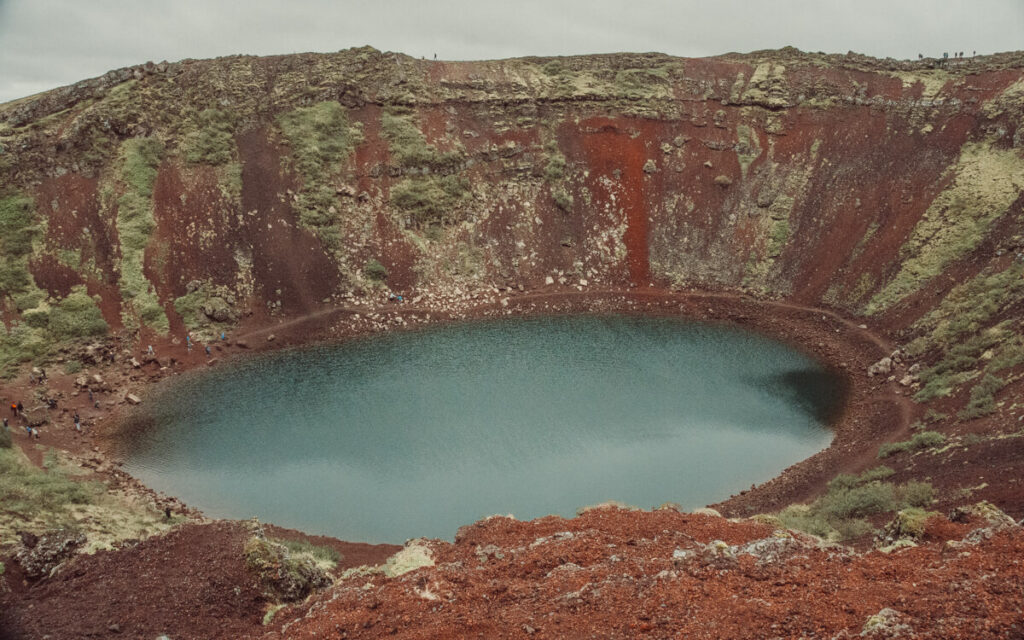
Most cars in Europe are equipped with manual transmissions (stick shifts).
When renting a car from a European company, especially in Iceland, you need to specifically request an automatic transmission if you want one.
Camper Van Sizes
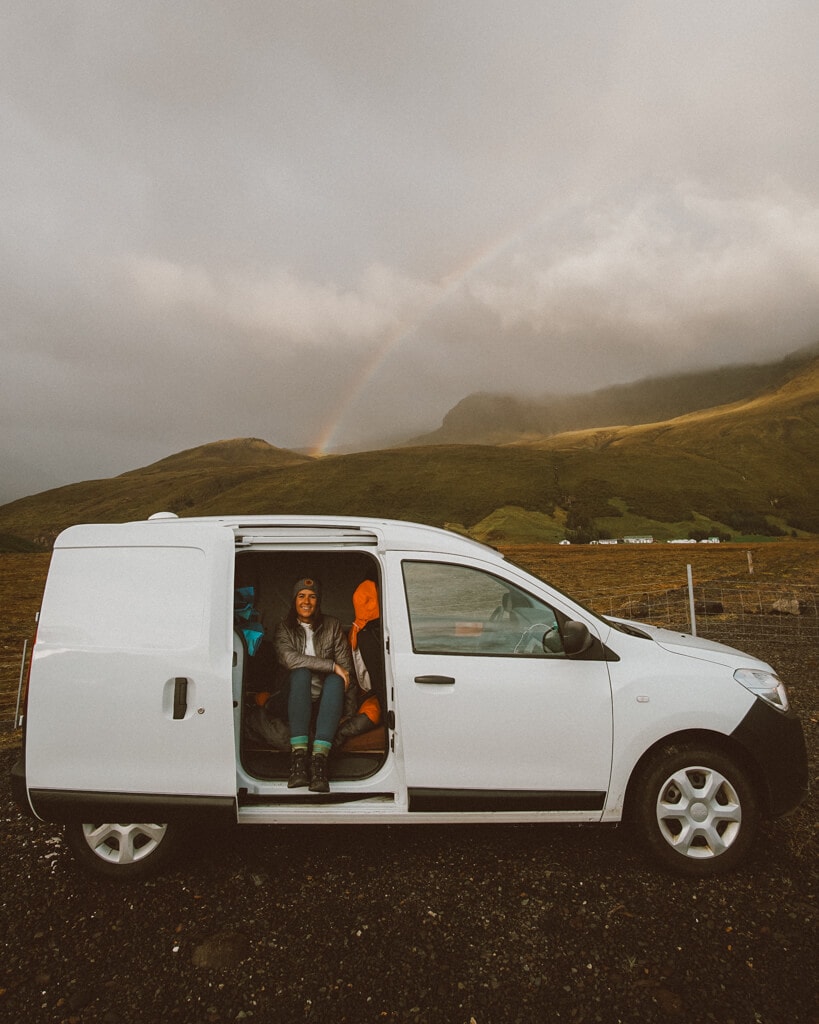
Before you book a camper van, consider how big you need it to be. Ask yourself these essential questions:
- How many people will be sleeping in the camper van?
- Alternatively, will you be opting to sleep in a separate tent?
- Should you get a bigger vehicle to fit all your luggage?
- Do you want to be able to stand up comfortably inside the camper van?
Think carefully about how much space you’ll need because it can significantly impact your overall experience. Remember, the camper van will be your home for the next while.
Camper Van Optional Extras to Consider
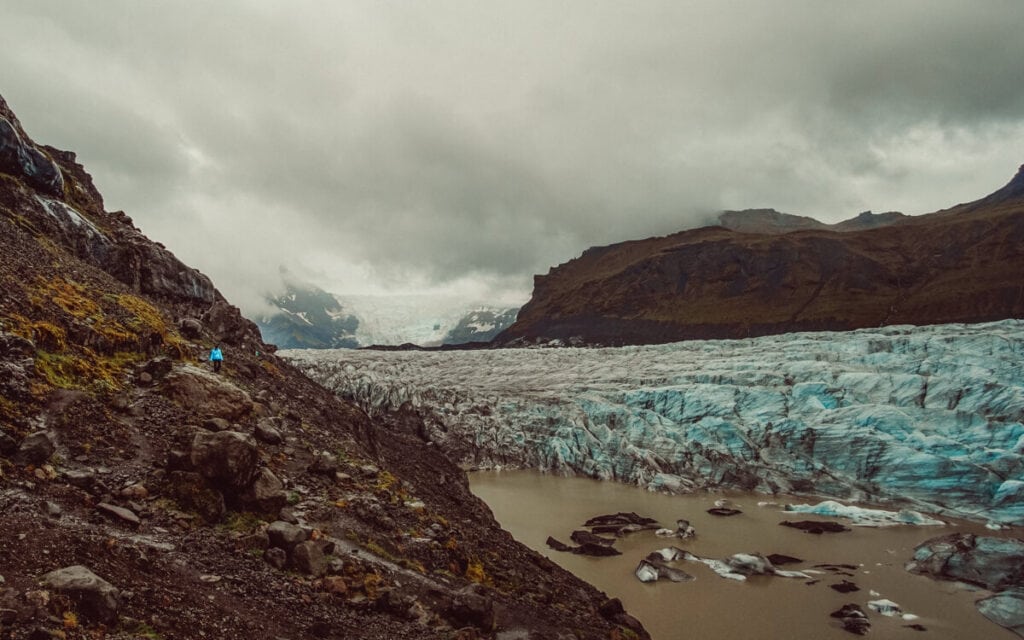
Sometimes, you can request specific items from your campervan rental outlet if needed. Here are a few examples of what may be available, depending on your desires.
- Container for kitchen supplies
- Cutlery
- Dishtowels
- Extra blankets
- Folding chairs
- Folding table
- Gas stove
- Heater
- Mattress
- Mini fridge
- Pillows
- Crockery
- Pots
- Curtains
- Refillable water tank
- Sleeping bags
- USB charging capability
- Wifi box
When to Plan a Camper Van Visit to Iceland
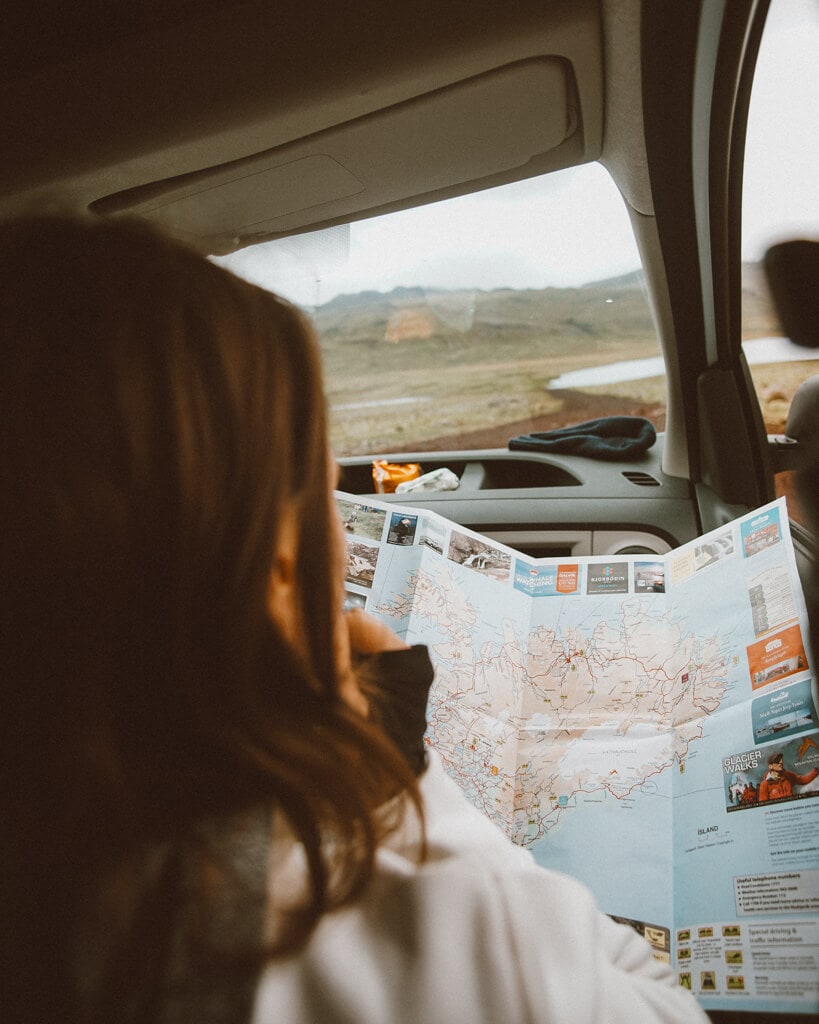
Most people visit during the summer months, from June to August.
If you do want to explore in the summer, it’s wise to book your camper van well in advance. They get reserved quickly, so booking at least six months ahead is recommended.
On the other hand, if you’re an adventurous soul, you can still go on a camper van journey during the winter.
Just be prepared for much colder weather and possible road closures, and I’d suggest you opt to rent a camper van with a heater to stay warm and cozy.
Spring and fall in Iceland are beautiful but unpredictable with the weather. Renting a camper van in the fall can be a good and enjoyable option (potentially cheaper, as there’s less demand).
Which Way Should You Go?
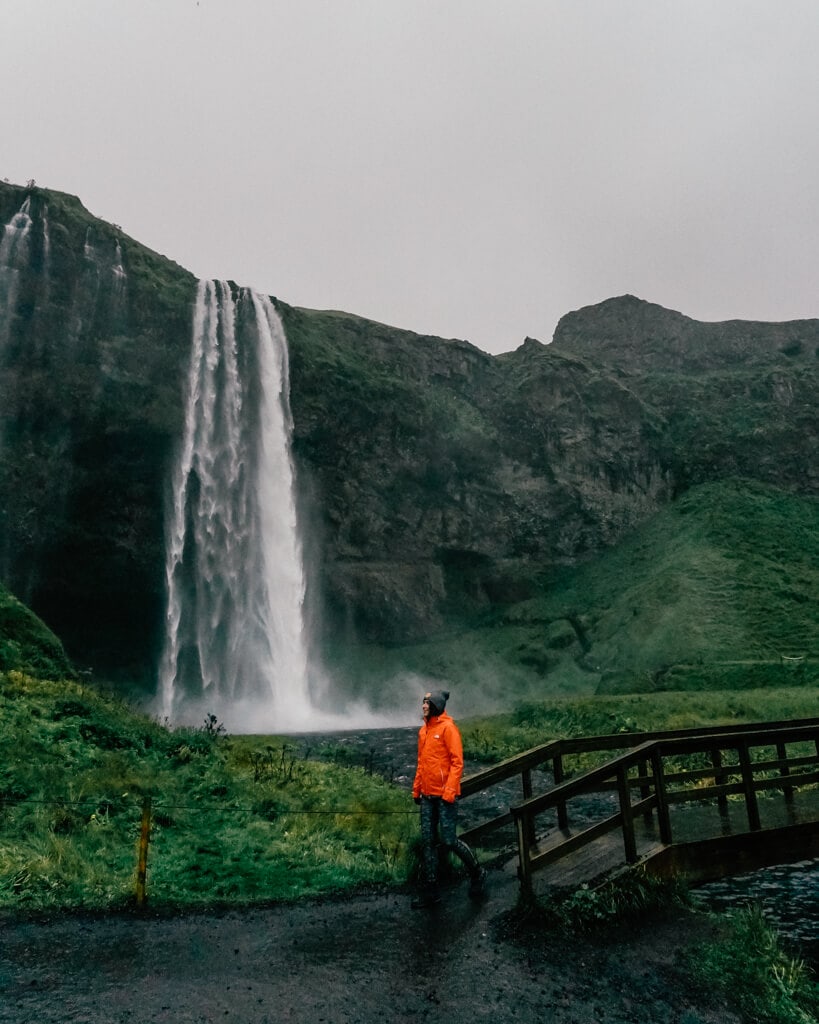
If you plan to explore Iceland’s famous Ring Road, you’re probably wondering where to go.
Here’s a straightforward tip: Follow the path with the best weather conditions.
Regularly check the road.is website for the latest updates on road closures and en.Vedur.is for precise weather forecasts.
General Tips For a Successful Camper Van Vacation in Iceland
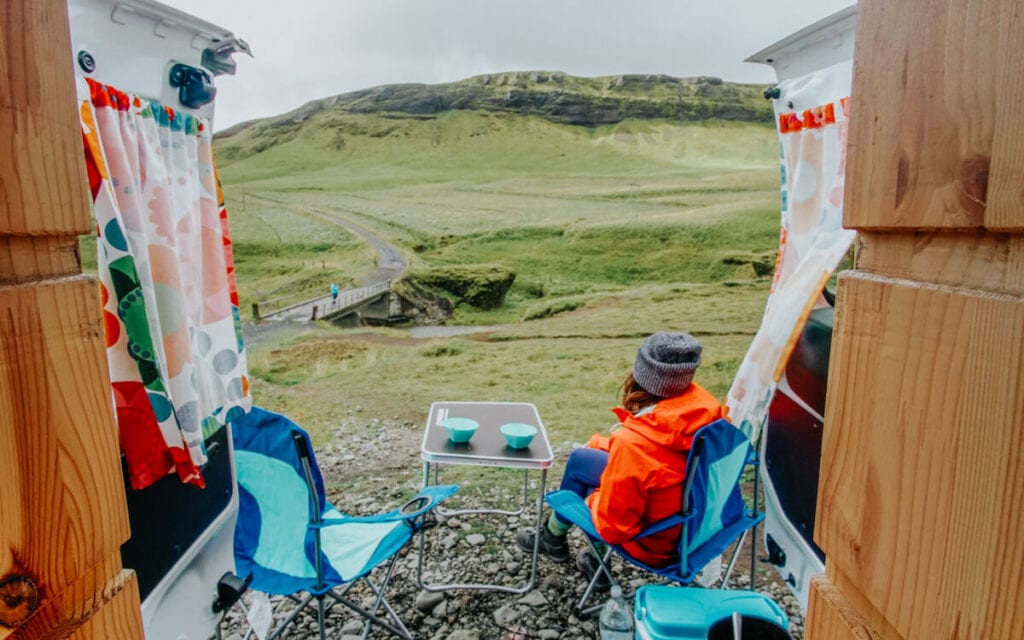
Once you have your van booked and you’re ready to go, here are some essential tips to make the whole experience smoother.
Know Your Pickups and Drop-offs

When you rent a camper van in Iceland, it’s different from renting a regular car at the airport. Your campervan will need to be collected at a separate location.
It’s important to find out where to pick up and drop off the camper van and know the specific times for these arrangements.
Dropping the ball on these aspects can prove costly, as rental companies will likely charge you for the booked camper van whether you’ve picked it up or not.
Similarly, returning your van late will incur penalties. Who wants to spoil the vacation if you can avoid it?
Budget for Gas and Van Incidentals
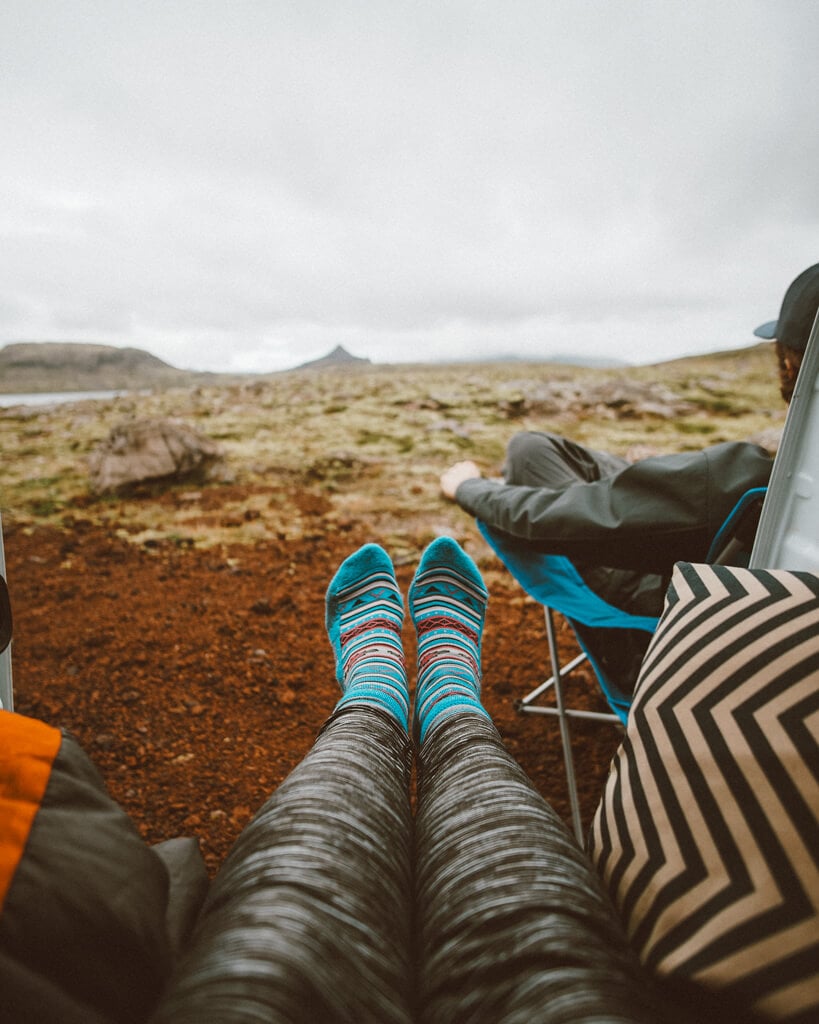
The most important planning is in your budget for gas.
Gas costs in Iceland can build up quickly, especially when traveling along the famous Ring Road.
For example, completing a journey around the entire Ring Road typically costs about $400 USD on fuel alone.
American credit cards won’t be of much use at the gas pump. Instead, opt for a debit card or a card equipped with a PIN to ensure smooth transactions.
Also, avoid the “fill up” option, which will place a significant $250 hold on your card (it will eventually be refunded, but still a hefty charge).
Tip: N1 gas stations in Iceland serve as more than just places to refuel. These multi-purpose establishments often feature grocery stores, coffee shops, and tempting hotdogs. So, make the most of these convenient stops during your journey.
Plan Your Meals
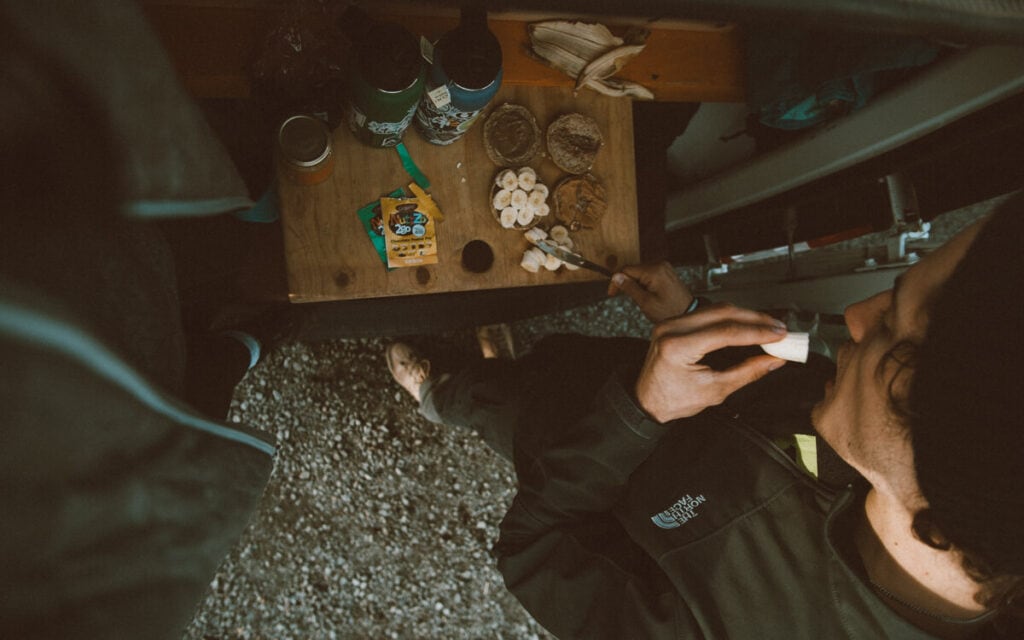
When renting and traveling in a camper van, you can choose between eating out or cooking meals on the road.
Planning helps you save time on grocery shopping and prevents you from spending too much money on food.
One of the main benefits is saving money by cooking your meals.
When you plan, you’ll know exactly what you’re eating and have control over the ingredients. You’ll also be able to figure out what you need to bring and plan your meals for the week.
You also won’t have to worry about finding a place to eat at the last minute.
If your travel plans involve being out all day and you won’t have time or desire to cook dinner, consider preparing a few meals in advance that you can simply reheat when you’re ready to eat (assuming your camper van has the facility).
Make a list of all the food you’ll need and try to stick to it. This will help you avoid bringing unnecessary items and save space.
- Invest in good-quality storage containers to keep your food fresh and prevent it from spoiling.
- Zip-lock bags are also great for storage as they take up less space than containers.
- Make sure to use all the available space in your RV, including cabinets, shelves, drawers, and the fridge and freezer.
A Special Note on Safety
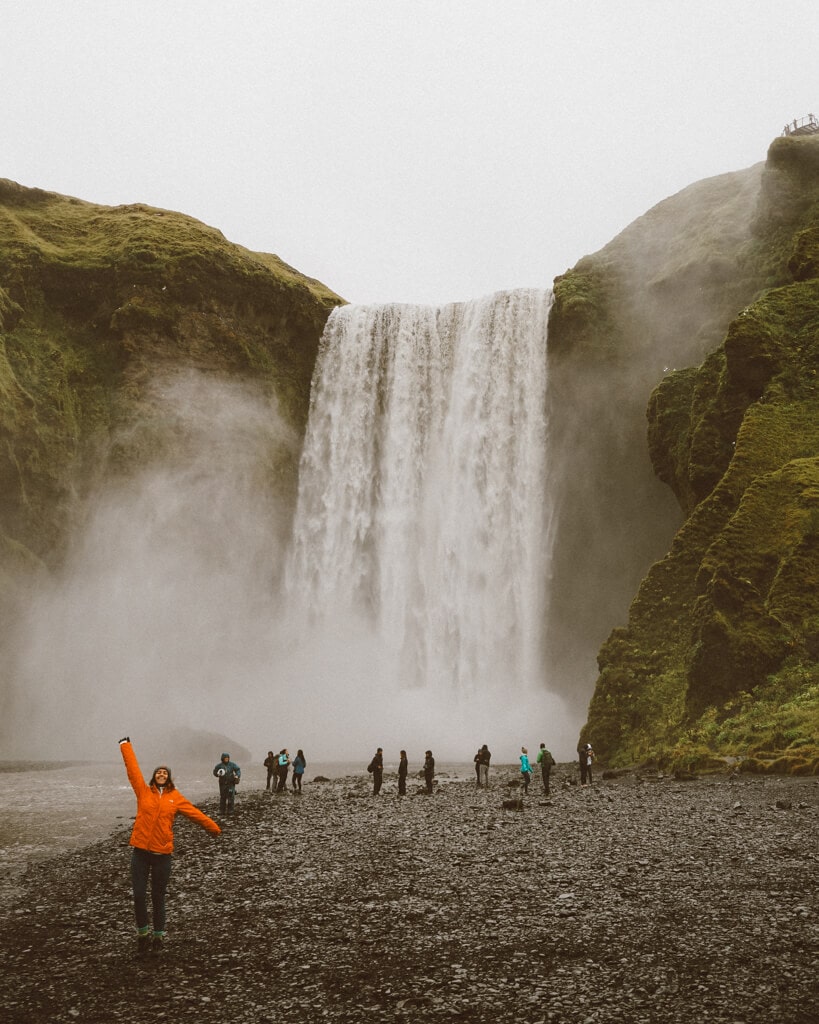
You typically won’t have to worry too much about encountering dangerous animals in Iceland. Most will avoid humans.
That said, be careful when driving on the road (especially at night), and be mindful of the odd critter crossing your path.
Arctic foxes, for example, may look cute, but have razor-sharp teeth and will use them if threatened.
The winds that sweep across Iceland possess extraordinary strength and unpredictability. The gusts defy expectations and reach unparalleled levels of intensity. Opening a car door may seem mundane, but in Iceland, it takes on a whole new level of risk.
It is crucial to tightly grip the handle to prevent disaster, as failure to do so could result in the door being violently ripped from your grasp, akin to a bird taking flight.
It is a reminder that even in a seemingly ordinary moment like opening a car door, one must remain vigilant and respect the might of the elements.
For more safety tips, especially for solo female travelers, check out this article on how to stay safe.
Speeding and Road Rules
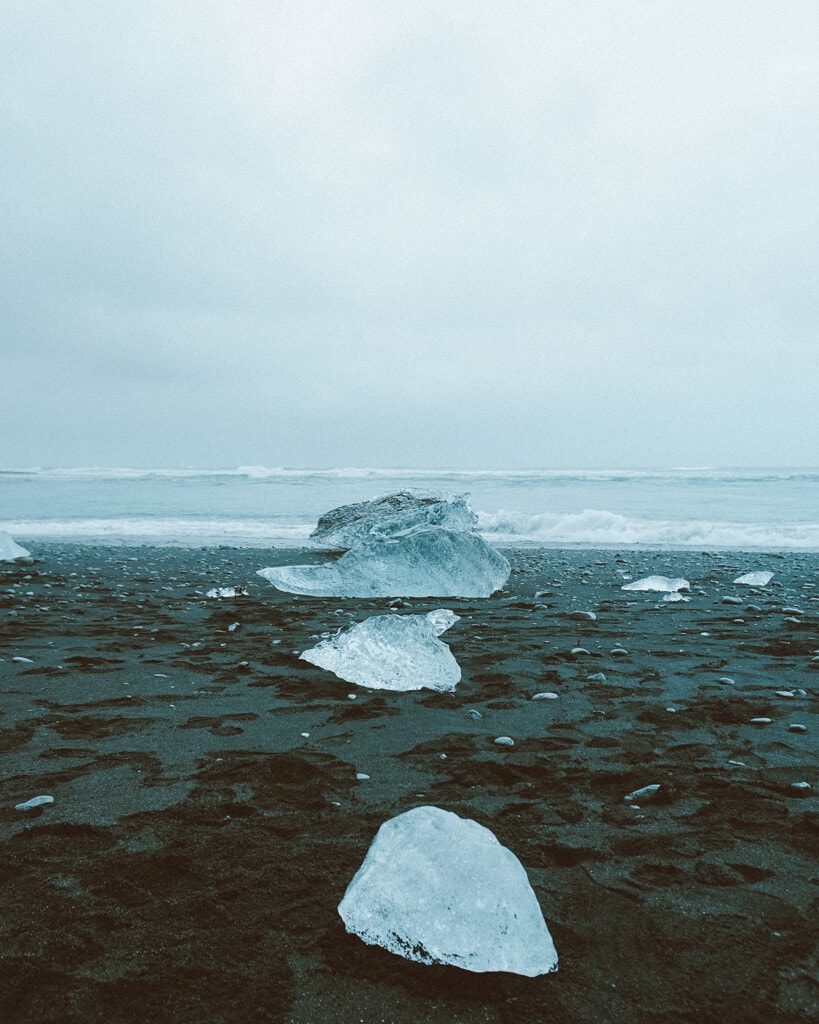
Google Maps is your trusty ally when it comes to navigating the abundance of speed traps in the country.
The app reliably alerts drivers about these enforcement areas. Speeding will earn you a hefty fine in Iceland.
But why speed anyway? You don’t want to miss an inch of this beautiful country.
General Tips for Camping and Campsites
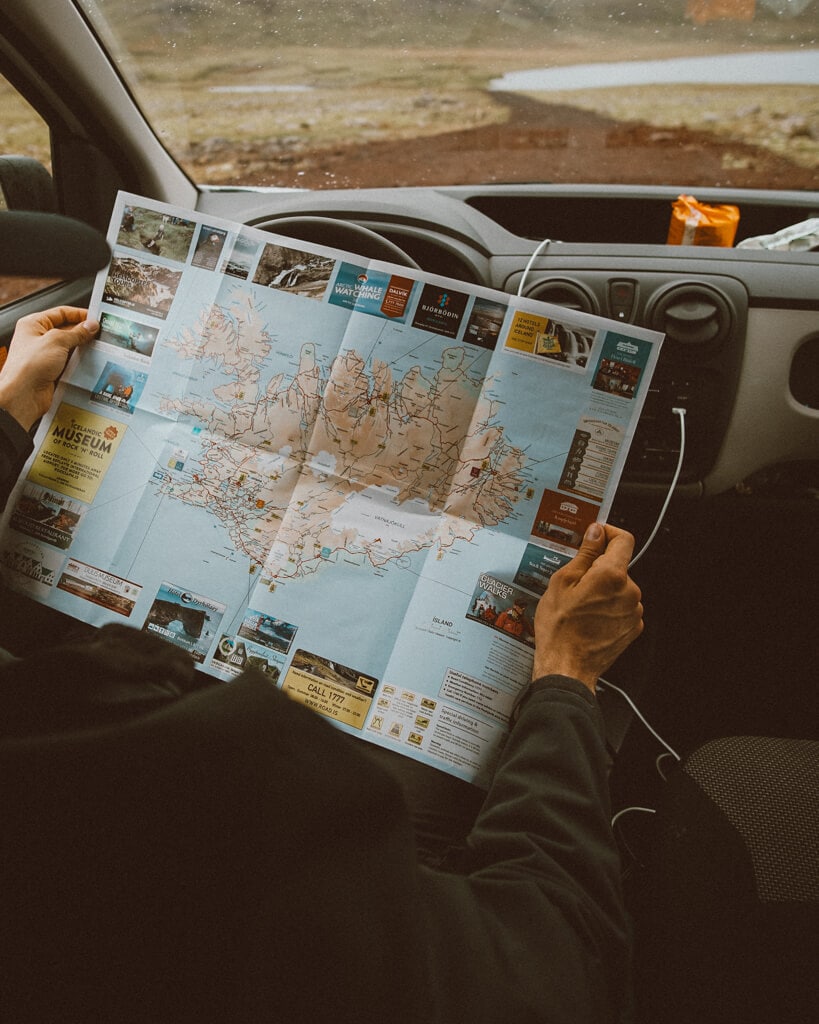
A few aspects of the camper van life in Iceland might catch you off guard. These include limited shower facilities and the need for strategic planning when it comes to selecting a pitch.
Campsite Pitches & Shower Facilities
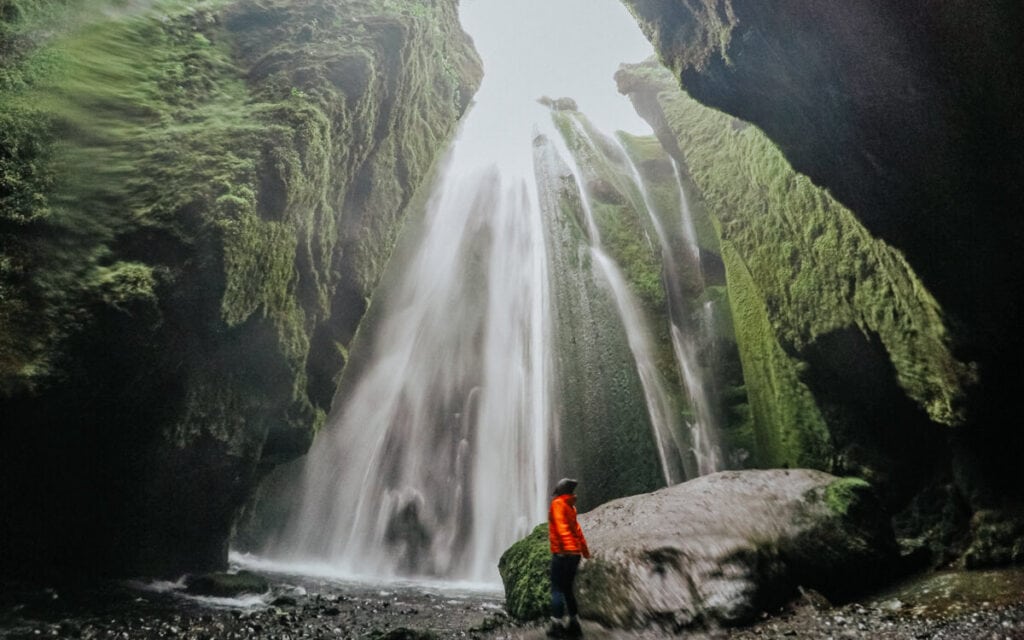
One thing to note is that showers are often an afterthought at Icelandic campsites.
Unlike campsites in other parts of the world that offer well-equipped shower blocks, this is not always the case in Iceland.
Finding showers can be hit or miss; don’t expect luxurious or spotlessly clean facilities.
Some campsites may not have showers at all, while others may require an additional fee for hot showers. The cost is often based on the hot water usage duration; in some cases, the showers are communal rather than private.
Only a few campsites include private, hot showers in the standard camping charge.
Another important aspect to consider is campsite etiquette and pitch selection. Unlike in other countries, where you can choose a pitch and leave it unattended, this is not typically allowed in Icelandic campsites.
Setting up their tents and leaving the campsite for other activities might be an option for tent campers.
However, camper van travel presents a different situation. You risk losing your pitch if you leave the campsite without a physical presence to hold your spot.
Parking a Camper in Iceland Outside Designated Campgrounds
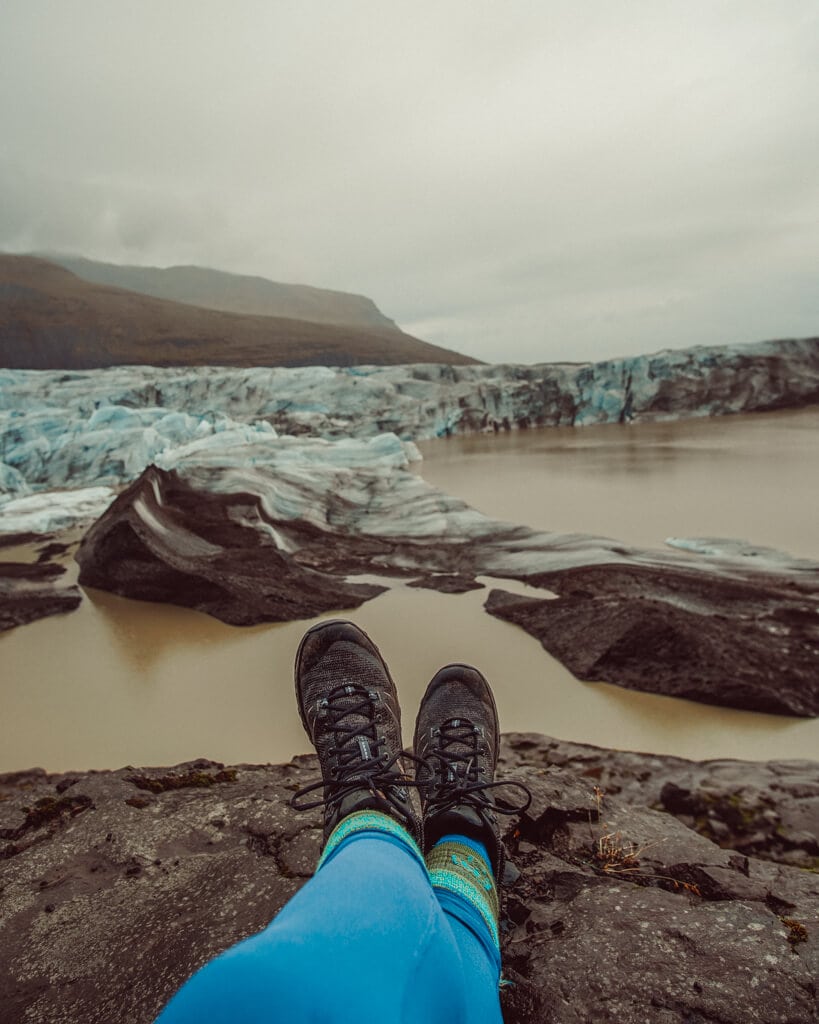
Iceland has many rules and regulations regarding camping, and it’s important to be aware of them, even if they are unclear.
Most importantly, camping outside of designated campgrounds is against the law.
During winter months, it’s advisable to verify if the campgrounds are operational since many facilities close by mid-September.
Different municipalities have their camping laws and varying standards of enforcement. This might have you searching for uncultivated land for a free camping opportunity, but remember to explore on foot, as offroading with a 4×4 is generally prohibited.
Additionally, camper vans and cars are not allowed on uncultivated land, nor can they be parked indefinitely on the side of public routes.
National parks are a no-go for this, too. Þingvellir National Park, Vatnajökull National Park, and Snæfellsjökull National Park all prohibit camping outside of their designated areas.
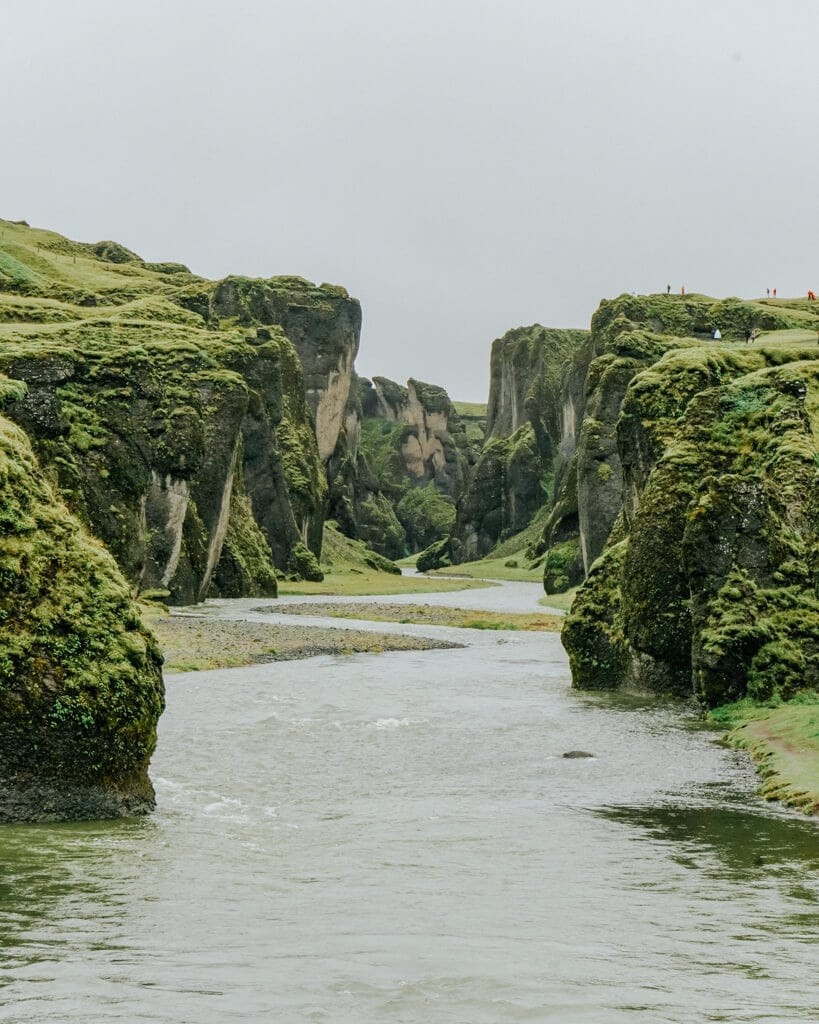
Numerous other areas, such as Álafoss, Fjallabak, Hverfjall, Mývatn, and Jökulsárgljúfur, also strictly forbid camping.
Even if you find a spot on Iceland’s beautiful uncultivated land for a free stay, remember that you are legally permitted to stay for only one night.
Moreover, Icelandic law stipulates that if a regulated campsite is nearby, you cannot engage in “wild camping.”
The great news is that there are quite a few great camping van spots that will welcome you on your road-tripping journey across Iceland.
Final Thoughts on CamperVan Iceland Trip
The rugged landscapes, breathtaking vistas, and the freedom to explore at your own pace make Iceland a dream destination for adventure seekers.
With an awareness of the rules and regulations surrounding camping in the country, there’s no reason why a camper van excursion here should not be a life-changing experience.
Despite the challenges, the allure of campervanning in Iceland remains strong, offering travelers an unforgettable journey through a land of fire and ice.
So, pack your bags, embrace the wanderlust, and embark on an unforgettable camper van adventure in Iceland.